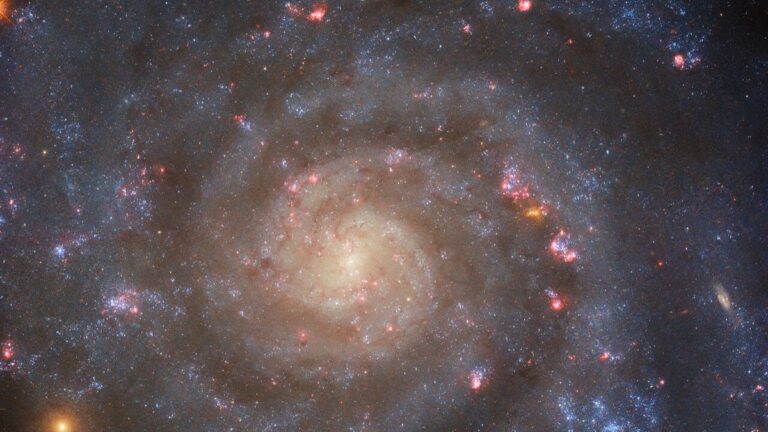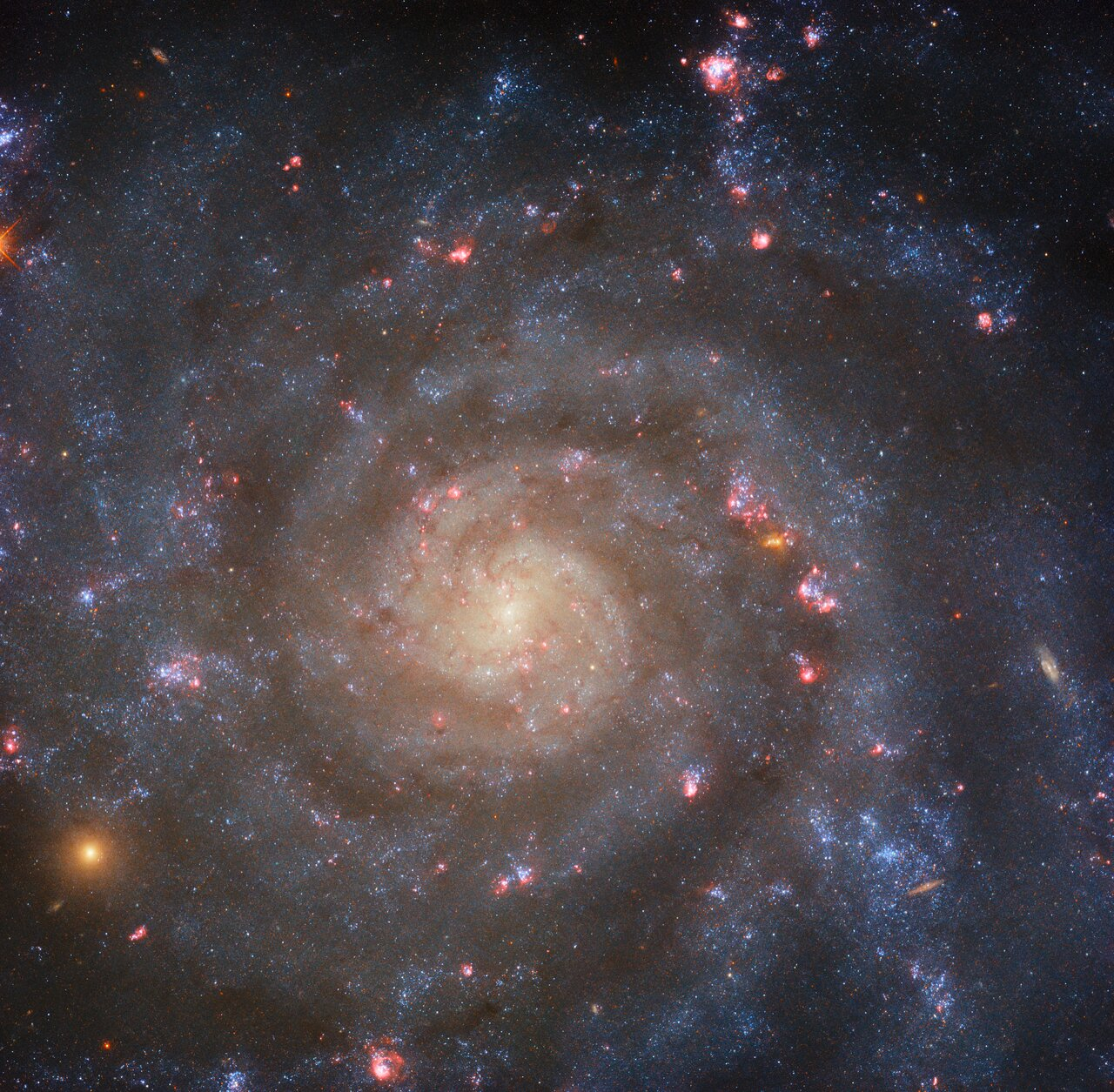
[ad_1]
The Hubble Space Telescope has captured a striking new “face-on” view of a spiral galaxy with loosely wound arms swirling around a bright core.
The spiral galaxy IC 5332 lies approximately 30 million light-years from Earth in the constellation Sculptor. The Hubble Telescope’s vantage point offers a face-on view of the galaxy, showcasing its large, circular structure and winding spiral arms dotted with brightly glowing clusters of star formation in pink and orange.
“To explain what is meant by ‘face-on’, it is helpful to visualize a spiral galaxy as an (extremely) large disc,” European Space Agency (ESA) officials said in a statement releasing the new image. “If the galaxy is oriented so that it appears circular and disc-shaped from our perspective here on Earth, then we can say that it is ‘face-on’.”
Related: The best Hubble Space Telescope images of all time!
Conversely, a galaxy may appear “edge-on” from our perspective on Earth. In this case, the galaxy would look squashed and oval-shaped, rather than disc-shaped. But given an edge-on view captures the galaxy from the side — oftentimes revealing a bright central bulge — viewers lose any sight of the galaxy’s intricately wound arms from this angle.
“The key thing is that the same galaxy would look extremely different from our perspective depending on whether it was face-on or edge-on as seen from Earth,” ESA officials said.

IC 5332 is classified as a SABc-type galaxy, meaning it lacks a clear central bar structure and its spiral arms are not very tightly wound. About two thirds of all spiral galaxies have a distinct, elongated bar-shaped structure at their center, while others spiral out from one single point (known as an unbarred spiral galaxy). With a weak central bar, IC 5332 falls somewhere in the middle — also known as an intermediate spiral galaxy — which is what the “SAB” stands for, according to the statement.
Although IC 5332 has well-defined arms of bright stars that curl outwards from the galaxy’s dense, bright core, its spiral arms are not tightly wound, which is why it is assigned a lowercase “c” on the classification scale, where “a” would indicate very tightly wound and “d” very loosely wound, ESA officials explained.
[ad_2]